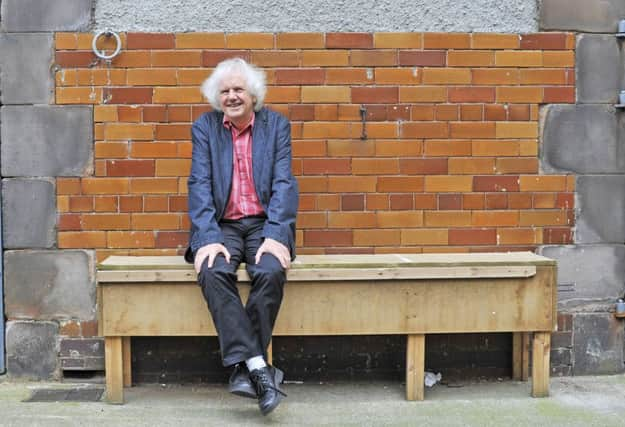Foul and fair


It’s 1985. The top floor of a tenement – Barclay Towers – is occupied by young people. Chief among them are Hume, a philosopher, who sleeps in a cupboard, “St Francis”, a failed priest, and “The Cat”, a mathematician; all educated, all poor, all going nowhere. Others will drift or be brought in; Diana (DD) a not very gifted pianist, and Megan, found begging in the streets and befriended by St Francis. There are parties with drink and hash-cakes, picnics on the roof in summer. It’s post-student life, prolonged from apathy and poverty.
Hume’s bid for academic success, a “ground-breaking” paper on “The Appearance of Reality and the Reality of Appearance” has fallen stillborn from the press. There is no lectureship in waiting, and DD, who has by ruthless exploitation of her charms obtained from her tutor the Performance Certificate “with Distinction” to which she aspired, is showing signs of impatience. A new direction is required, one more in keeping with the loadsamoney of mid-Thatcher times. Hume acts, setting up a company “Executive Service”, providing butlers, footmen, waiters for Edinburgh’s rich. It begins with wild improvisation, astonishingly succeeds. The philosopher, it seems, is in tune with the times; remarkable.
Advertisement
Hide AdAdvertisement
Hide AdWe skip forward 20 years. Hume is rich, DD habitually drugged or drunk. Executive Service booms, most of its income undeclared to the taxman. But Hume has become involved in an uneasy client-relationship with Melville, a businessman-gangster, not far removed from Ian Rankin’s Cafferty, and is, though he doesn’t realise it, playing out of his league.
This is 2005, the year of the Gleneagles Summit, of public protests, “Make Poverty History”, riots and heavy-handed policing. The Cat, back from Australia, gets caught up in this. So, though less directly, does Hume, just about to stage his most audacious and deplorable event, his Billionaires’ Banquet. But his house of cards is on the point of collapse; his relationship with Melville has turned sour. It is time to pay up, and he can’t. The novel reaches its climax frenetically: wild comedy joined to a caper-style thriller.
There’s an epilogue: Hume settled in a bar in Majorca; a true philosopher at last, he has learned the lesson of Voltaire’s Candide: we must cultivate our garden.
Butlin writes exuberantly but not without an undertone of despair. Wild comedy and satire alternate with bleak social observation. The characters are types rather than individuals. That’s not surprising; this is a novel of ideas, not one about credible individuals. Most of the dialogue is no better than serviceable. Indeed there is a sharp contrast between its second-hand nature and the vividness with which the streets, weather and feel of Edinburgh are realised. One of the themes is the corrupting power of money; even corporate charity is exposed as a rip-off. You might say it was an angry or bitter novel if cheerfulness and a delight in absurdity didn’t keep breaking in.
Advertisement
Hide AdAdvertisement
Hide AdI like the ending: “After more than sixty years, Hume has given up trying to understand the world. Thinking is over-rated, he tells his customers. Kant’s concept of ‘Perpetual Peace’? Not a chance...” None indeed, but it’s nice to think that Hume, having shed his pretensions and ambitions, has acquired a degree of wisdom. Thinking may indeed be overrated. But Butlin, to his credit, still delights in thought. His novel fizzes with intellectual brio. Muriel Spark, that other creator of a true-to-fiction Edinburgh, said she wrote her novels on the “nevertheless” principle, as expressed by two ladies in an Edinburgh tea-shop, one of whom dampened the mood by observing “Nevertheless, it’s raining.” There’s an awful lot of wind and rain in Butlin’s novel. Naturally there is. He too is a nevertheless novelist.